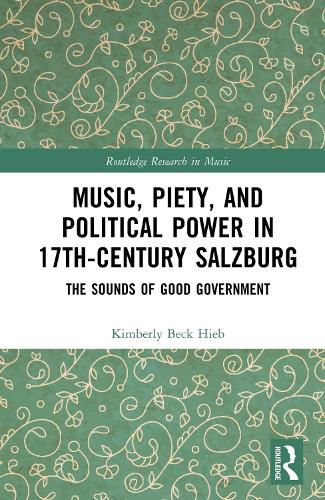Readings Newsletter
Become a Readings Member to make your shopping experience even easier.
Sign in or sign up for free!
You’re not far away from qualifying for FREE standard shipping within Australia
You’ve qualified for FREE standard shipping within Australia
The cart is loading…






Music, Piety, and Political Power in 17th-Century Salzburg traces the role of sacred music in the service of politics at the archbishopric of Salzburg, one of many jurisdictions that made up the Holy Roman Empire in the second half of the 17th century.
The author reveals that the use of music to present political, cultural, and religious meanings was not limited to cross-confessional communities, the Imperial capital of Vienna, or other early modern metropolitan centers such as Munich and Paris.
Presenting music as a powerful cultural artifact that informs our understanding of the religious and political relationships shaping the history of central Europe, this study expands our understanding of the history of music, absolutism, and Catholicism in the 17th century and will be of interest to scholars working in those areas.
$9.00 standard shipping within Australia
FREE standard shipping within Australia for orders over $100.00
Express & International shipping calculated at checkout
Music, Piety, and Political Power in 17th-Century Salzburg traces the role of sacred music in the service of politics at the archbishopric of Salzburg, one of many jurisdictions that made up the Holy Roman Empire in the second half of the 17th century.
The author reveals that the use of music to present political, cultural, and religious meanings was not limited to cross-confessional communities, the Imperial capital of Vienna, or other early modern metropolitan centers such as Munich and Paris.
Presenting music as a powerful cultural artifact that informs our understanding of the religious and political relationships shaping the history of central Europe, this study expands our understanding of the history of music, absolutism, and Catholicism in the 17th century and will be of interest to scholars working in those areas.